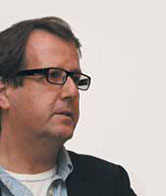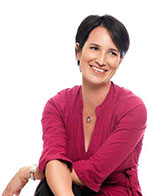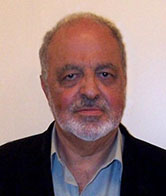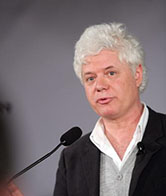TCD/UCD Public Lecture Series 2013-2014
The Department of Sociology at Trinity College Dublin (TCD), in collaboration with University College Dublin (UCD) and the Policy Institute at TCD, has initiated a series of public lectures in which internationally acclaimed speakers will discuss contemporary sociological issues. The aim of this TCD-UCD Sociology Public Lecture Series is to promote informed and non-partisan debate and to offer new ideas on cutting-edge sociological issues including but not limited to responses to the current crisis. It provides a platform to deepen research and teaching synergies between TCD and UCD especially in light of HEA’s policy ‘Towards a Future Higher Education Landscape’. The series features two public lectures per term with one event hosted at TCD and the other at UCD.
Upcoming Speakers
First Event
Title: Universities in Crisis: Markets vs. Publics?
Speaker: Professor John Holmwood (University of Nottingham, BSA President)
Date and time: 14 November 2013, 7 pm
Venue: JM Synge Theatre, Arts Building
Video recording can be accessed here.
Abstract
This talk will address the implications of recent reforms to higher education that align the university with a neo-liberal, global knowledge economy. It will suggest that the reforms are a response to the emergence of mass higher education, but involve a shift away from understanding education as a social right and the expression of an inclusive public interest to an understanding of it as an investment in human capital and the expression of a private interest of individuals. This involves giving priority to the marketization of the functions of a university and the displacement of those functions that cannot be marketised, including its functions for democracy. The talk will also address neo-liberalism as a theory of knowledge (and not simply of public policy) and its possible implications for the social sciences, including sociology.
Biography
John Holmwood is Professor at the School of Sociology and Social Policy at the University of Nottingham. He is is President of the British Sociological Association and a Fellow of the Academy of Social Sciences. Holmwood is a co-founder of the Campaign for the Public University. He is editor of A Manifesto for the Public University (Bloomsbury 2011) and blogs regularly on higher education issues for the Campaign for the Public University, Research Blogs, Open Democracy, Sociology and the Cuts, and Universities in Crisis. Holmwood's main research interests are the relation between sociological theory and explanation, and social stratification and inequality. His current research addresses the challenge of global social inquiry and the role of pragmatism in the construction of public sociology. He has just completed a Leverhulme Research Fellowship on the moral economy of inequality.
Second Event
Title: Muslims in Europe: Veils in Public Spaces and the Current Political Crisis
Speaker: Professor Valérie Amiraux (Montreal University)
Date and time: 26 November 2013, 7 pm
Venue: JM Synge Theatre, Arts Building
Video recording can be accessed here.
Abstract
Over the last thirty years, the visible “otherness” embodied by the Muslim population in the European Union has sparked transnational movements of moral panic, driven mainly by the fear of the collapse of “national cohesion.” Islamic women’s attire is presented as an increasingly delicate problem, an issue at the center of legal battles and the subject of virulent political controversies in various countries. What does the omnipresence, not to say ubiquity, of public discussions about religious otherness reveal about the current political crisis? This talk is more specifically concerned with the “public texture” of the discussions surrounding the recent ban on the wearing of the full veil in public spaces. Occurrences of local frictions, tensions, and more recently, episodes of outright violence, have emerged in different contexts, regardless of the national conventions with regards to immigration politics, the relationship between church and state and the wider construction of national identity. They are part of a racializing configuration about which I wish to develop three arguments. The first hinges on the unintelligibility of certain manifestations of belief in secularized European public spaces. The second develops an analysis of the racialization of the indicators of religious belonging, which most specifically affect the Muslim population of the EU. The third finally proposes some speculative readings of the public experience of the different crises arising from the visibility of Islamic religious signs and the capital attached to their visibility: what does this fetishism surrounding religious attire tell us about the European political adventure?
Biography
Valérie Amiraux is a full professor in the department of Sociology at the Université de Montréal and Canada Research Chair in Religious Pluralism and Ethnicity (CRSH, 2007-2017). Before moving to Montreal, she held several different positions in Europe, including at the Centre Marc Bloch (Berlin), the Robert Schuman Centre for Advanced Studies (Florence, Italy) and at CNRS-CURAPP (currently on leave from her CNRS position). Her research, initially focused on Muslim minorities in Europe, is today more concerned with the role of the legal arena in regulating conflicts produced by the experience of religious pluralism and on the ethnography of the relationship between pluralism and radicalization within an urban context. Among her recent publications: ‘Racialization and the Challenge of Muslim Integration in the European Union’, in S. Akbarzadeh (ed.) Handbook of Political Islam, London, Routledge, 2012, pp. 205-224; and ‘Religion and political sociology’, in E. Amenta, K. Nash, A. Scott (eds.), The Wiley-Blackwell Companion of Political Sociology, West Sussex, Wiley-Blackwell, 2012, pp. 336-346.
Third Event
Title: Imagining National Cuisines
Speaker: Professor Sami Zubaida (Emeritus Professor Birkbeck College, University of London Professional Research Associate, Food Studies Centre, SOAS)
Date and time: 05 March 2014, 7 pm
Venue: JM Synge Theatre, Arts Building
Video recording can be accessed here.
Abstract
Themes of food, gastronomy, nutrition and ecology have become increasingly prominent in public discourses and the global media, aided by movements of people and goods and the spread of diasporic communities in the West. This has stimulated definitions and constructions of ideas of national and regional cuisines, with historical speculations on origins and diffusions. These themes will be examined with particular reference to the Middle East and the Mediterranean, with comparisons to other regions.
Biography
Sami Zubaida is Professor Emeritus of Politics and Sociology at Birbeck College, University of London, and a Fellow of Birbeck College. He is Professorial Research Associate in the Food Studies Centre in the School of Oriental and African Studies. His main research interests are Religion and Law, Nationalism, as well as Food and Culture. His latest publications include Islam, the People and the State: Political Ideas and Movements in the Middle East (3rd edition, London 2009, translated into Arabic, Hebrew, Italian and Turkish), A Taste of Thyme: Culinary Cultures of the Middle East (co-edited with Richard Tapper, 2nd edition, London 2000, translated into Arabic and Turkish), Law and Power in the Islamic World, (London 2003/5, translated into Arabic, Danish and Turkish), Beyond Islam: A New Understanding of the Middle East, London 2011.
Fourth Event
Title: The Open Society and its Immigrants: A Story of Avoidance, Conflict and Accommodation
Speaker: Professor Paul Scheffer (University of Tilburg)
Date and time: 19 March 2014, 7 pm
Venue: JM Synge Theatre, Arts Building
Video recording can be accessed here.
Abstract

Migrants from every corner of the world have changed the urban communities in Europe in the post-war era. The deficit of most studies in the field of migration is that the interaction of natives and newcomers is not analyzed, but moralized. What we need is a more open-minded view of the frictions and clashes characteristic of any mass migration process. In the 1920s, the founder of the Chicago school of sociology, Robert Park described a cycle of ethnic relations that progressed from 'isolation through competition, conflict and accommodation to assimilation'. The history of migration in America and Europa shows us that most integration processes entail avoidance, conflict and accommodation. The conflicts surrounding immigration can be productive, if we succeed in rethinking the idea of an open society.
Biography
Paul Scheffer is currently Professor of European Studies at Tilburg University. Before that he was Professor of Urban Studies at the University of Amsterdam. He was correspondent in Warsaw and Paris, made several documentary films and television series and published in the major European newspapers. In 2000 he wrote The multicultural drama, which was very influential in shaping the Dutch debate on migration. His most recent books are a comparative study of European and American immigration: Immigrant Nations (Polity, 2011) and a biography of his grandfather, the German Jewish philosopher Herman Wolf, Alles doet mee aan de werkelijkheid (Bezige Bij, 2013). His last documentary is Land of Promise, a two hour film on postwar immigration in Europe.

